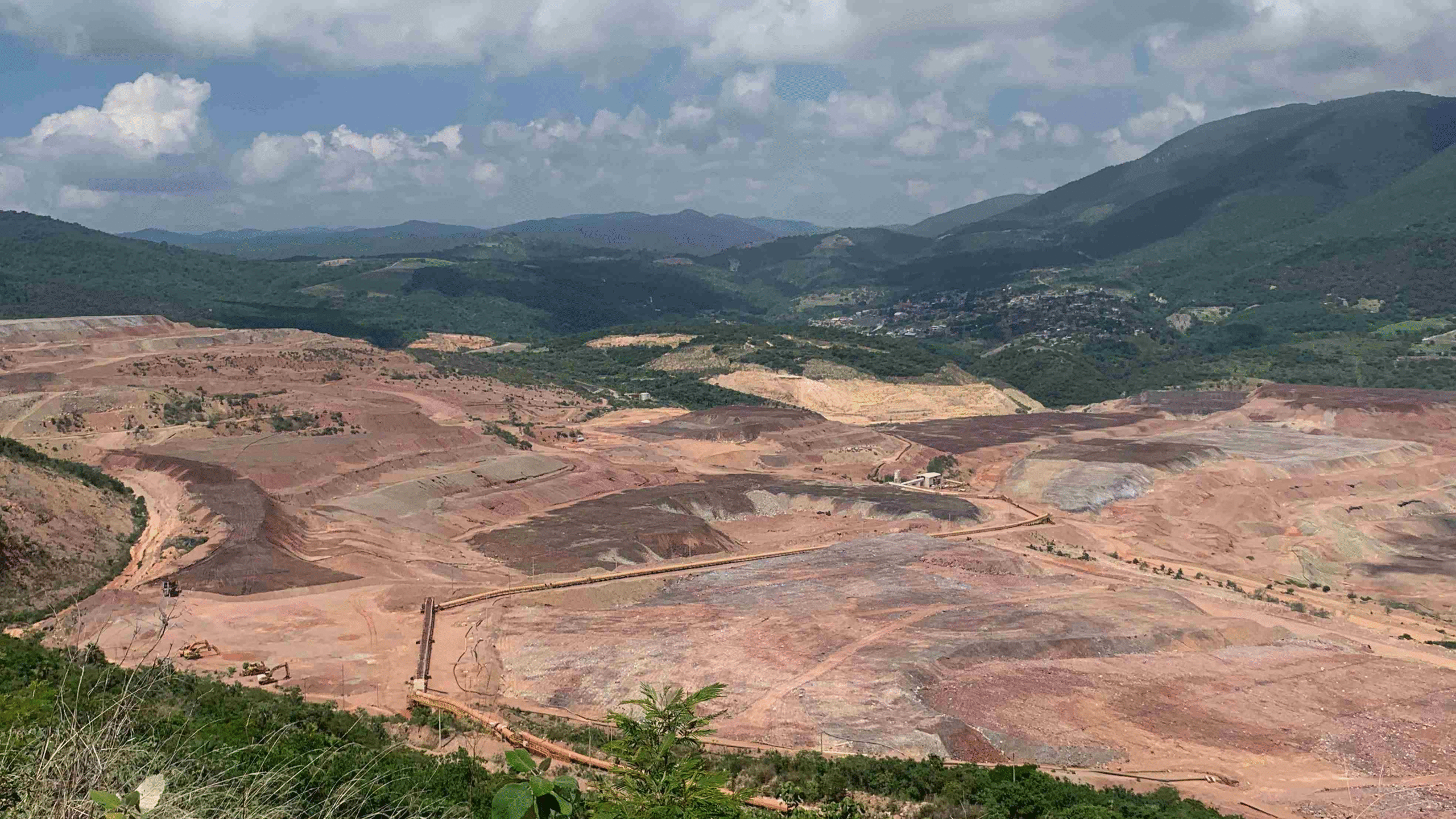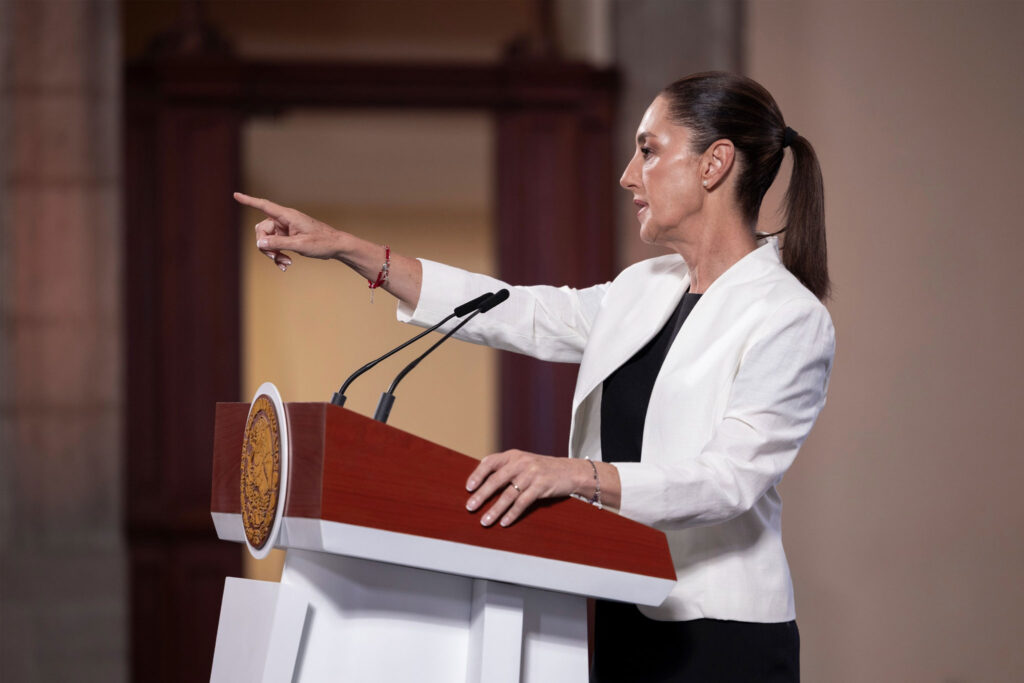Mexico, Canada & the USMCA: Status Quo or Course Correction?
This editorial by Manuel Pérez Rocha originally appeared in the September 22, 2025 edition of La Jornada, Mexico’s premier left wing daily newspaper. The views expressed in this article are the author’s own and do not necessarily reflect those of the Mexico Solidarity Project.
Canadian Prime Minister Mark Carney’s visit to Mexico last week bolstered the Claudia Sheinbaum administration’s efforts to save the USMCA from the likely derailment of Trump (see Latin American Risk Report). It also helped put the hesitation toward Mexico under former Prime Minister Justin Trudeau behind them. The resulting Canada-Mexico Action Plan 2025-2028 is full of good intentions regarding security, climate change, and other issues, but its main objective is clear: to increase Canadian trade and investment in infrastructure and extractive projects in Mexico.
It also served as a justification for Sheinbaum to put all her eggs in the North American basket and dispel, at least for a while, the questions surrounding her imposing new tariffs on countries with which Mexico does not have a free trade agreement, starting with China. Far from being conceived “to promote development in Mexico,” simply, as John Saxe-Fernández emphasized in this newspaper six years ago, the US imposed on Mexico and Canada “a harmful clause that locks us into a multidimensional bloc with the US in its friction with China,” which is escalating into a trade, technological, monetary, and security war (see La Jornada, “USMCA: More Unilateral Aggression?” 6/6/19).
It was unavoidable for Sheinbaum and Carney to address the issue of the impacts of mining during the visit. Sheinbaum demanded respect for environmental regulations, and Carney requested a list of mining companies in her country that do not comply with “sustainable mining” and promised to comply with “mitigation and remediation” requirements. To compile this list, Sheinbaum and Carney would do well to pay attention to the bulletin of the Mexican Network of People Affected by Mining (REMA), which categorically states that “the focus of this visit is on ensuring the continued prosperity—not shared, but racist—with which mining companies operate in our country.” It also denounces “Canada’s colonialist, interventionist, and extractive policies in Mexico and Latin America” and that “the Canadian government acts as if its true bosses were the mining companies, and not its population”.

REMA denounces mining companies’ lawsuits against Mexico under NAFTA/USMCA, or under the TPP (I have already written about the cases of Canadian mining companies Majestic, Almaden, and Almadex vs. Mexico). These multimillion-dollar expenses must be paid from the treasury. Given this reality, the rhetoric in the Mexico-Canada Action Plan is too worn out. For example, it proposes the same old thing: that the countries “will collaborate for sustainable mining development in both countries, in order to produce the mineral resources necessary to support the green transition and sustainable technologies of the future” and promote “responsible business conduct.”
Although the new comprehensive strategy seeks to establish a bilateral dialogue on security without interference from the central government, it is urgent to correct the most fundamental flaws of past administrations and replicated in the treaty, such as the prohibition of capital controls in the chapter on investments, whose Article 14.9 on transfers establishes that “each Party shall permit all transfers related to a covered investment to be made freely and without delay to and from its territory.”
The private sector is constantly consulted on issues of trade, and for the USMCA, was specifically invited to form a “coupling group” starting in 2024, coordinated by the powerful Business Coordinating Council, while unions and civil society are at a disadvantage in USMCA consultations.
According to a recent report by the United Nations Office on Drugs and Crime (UNODC), “illicit financial flows related to cross-border drug trafficking are comparable to the value of exports from licit markets… Organized crime and trade in illegal markets, such as drug trafficking and migrant smuggling, generate billions of dollars in illicit flows each year. The proceeds of these crimes can be channeled abroad, laundered, and reinvested in legal markets.”. As the organization Global Financial Integrity analyzes very well, this is done by hiding “wealth in seemingly legitimate sectors and investments, which may include real estate, textiles, automobiles, and others”.
There will be a lot of movement with the Ministry of Economy’s announcement, quite sudden, by the way, that the public will be consulted (generally speaking) regarding the USMCA. But it will be essential to ensure the establishment of genuine spaces and mechanisms for dialogue, forums, etc., and to go beyond merely acknowledging receipt of proposals sent to a physical or electronic mailbox. Ready, set, go! We have 60 days to submit proposals, but by the way, social and civil society organizations are starting a race as if it were an 800-meter dash, with a disadvantage of at least 700 meters. Private sector initiatives are constantly consulted, and for the USMCA, they were specifically invited to form a “coupling group” starting in 2024, coordinated by none other than the powerful Business Coordinating Council (CCE).
How can we synthesize more than three decades of in-depth research on the impacts of NAFTA and the attempts, so far unsuccessfully, to promote alternative trade models to the prevailing neoliberal model? The Mexican government will have to listen to at least two opposing narratives. The ever-present one, that of the minority made up of large transnational corporations who look out only for their own interests, and the one of organizations of people affected by investments that impact their human rights, dispossess them of their territories, pollute their waters, etc., and who propose and fight for alternative livelihoods to the neoliberal model. This is certainly no easy task, not suitable for the technocrats at the service of those in power who are already taking aim.
-
People’s Mañanera January 19
President Sheinbaum’s daily press conference, with the ever-frequent reading of the polls, raising revenue without raising taxes, Salinas Pliego tax debt comes due, US Hercules plane landing in Mexico, and Mexican dying in ICE custody.
-
Our Water, In Whose Hands?
A promising vision from President Sheinbaum for public water management rapidly disappeared. Yet again the Mexican state openly assumes the role it has always played under neoliberalism: facilitating access to natural resources for special interests.
-
38 Billion Pesos Withdrawn from AFORE Accounts Due to Unemployment
The large number of Mexicans withdrawing from their pensions to survive unemployment indicates an urgent necessity to establish national unemployment insurance.




